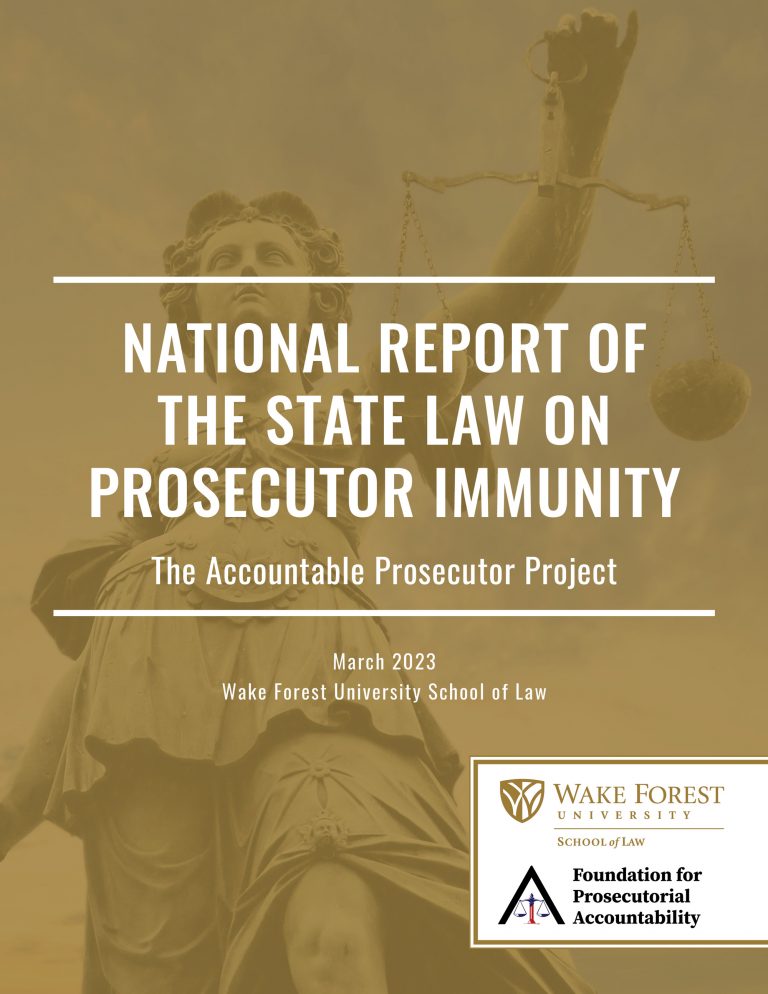Accountable Prosecutor Project Releases National Report on State Absolute Immunity Law

In 2021, Wake Forest Law launched its Accountable Prosecutor Project, a research arm of the Foundation for Prosecutorial Accountability. The Project’s purpose is to research the current landscape of prosecutor accountability mechanisms as well as ways to improve prosecutor transparency and connection with communities. Since then, 13 research assistants and 4 attorney volunteers have worked with Project Director Eileen Prescott to assemble the Accountable Prosecutor Project’s first major report on absolute immunity law.
This report is a survey of the case law in each state’s courts (not federal courts) regarding lawsuits against prosecutors. In most states, prosecutors are protected by “absolute immunity,” which is even more protective than the qualified immunity that protects law enforcement officers. Typically, absolute immunity means that people cannot sue prosecutors even for malicious misconduct, as long as the prosecutor’s action was related to their job. But there are always exceptions: legislators and courts in each state must decide what behavior is outside of a prosecutor’s role and if there are any circumstances where the immunity should be abridged. This report compiles the unique approach of each state in one place so that academics and practitioners can analyze them in the aggregate.
Key takeaways from this national report on state absolute immunity law include:
- Several states do not apply absolute immunity to prosecutors, relying on sovereign immunity or qualified immunity when prosecutors are sued.
- Most states act in the shadow of federal law on the matter, reacting to federal Supreme Court cases that carve out exceptions for non-judicial prosecutor duties such as press conferences or on-scene investigation.
- The question of absolute immunity for prosecutors has never reached the highest court of 11 states, and 62% of states had five or fewer relevant cases in their history.
The full report is available here.
Categories: Our Research, Our Stories